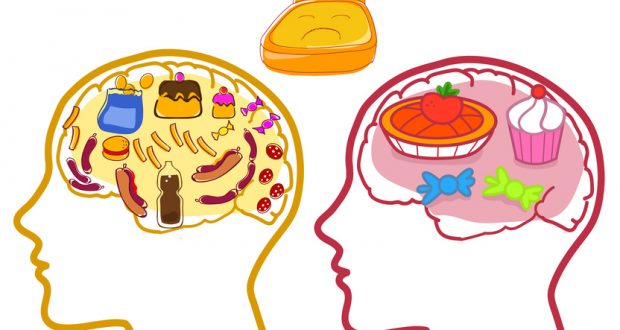45 million Americans go on a diet each year. What many of them don’t know is that their brains are controlling those diets!
The brain regulates body weight and body fat in an effort to keep the body safe and protected. Everyone has a certain weight and level of body fat that keeps the brain “happy.”
If you deviate too far from this comfort weight, the brain will take action to bring the body back. This process is similar to how the body reacts to changes in temperature- if you’re body becomes too hot or too cold, the brain will do whatever it takes to bring the body back to a safe temperature.
When the body experiences weight loss, the amount of leptin (a “hunger hormone”) in your bloodstream drops. This decrease in leptin signals your brain that you need to eat in order to bring back the “protection” of the weight you lost.
Isn’t that grand? It’s precisely the opposite effect that we would hope for when dieting – our brains are fighting against us! If you have a goal weight in mind that is different from your brain’s, you will have a harder time losing weight.
Dieting also triggers an increase in stress hormones like cortisol, which is linked to weight gain. You become more likely to fall victim to emotional eating. This occurs when you eat out of boredom, stress, or anxiety.
This is part of why it is so hard to lose weight, and keep it off. Traditional “dieting” is actually far more likely to cause weight gain than weight loss!
The way to lose weight and keep it off long-term is not through “dieting” but through a commitment to a healthier lifestyle.
Talk with your healthcare team about your current weight, and what your physician recommends to be your “goal weight.” Together, develop a plan of action that includes food choices, physical activity, health check-ups, etc.
There are several specific ways you can make better food choices to help you in your weight loss journey.
Try cooking more meals at home. Experiment with foods you may not have tried before. Let your kids or grandkids try new foods, and new cooking techniques alongside you. Eating healthier can be a fun and positive way to bring the family together!
When grocery shopping, make a list and stick to it. Shop from the list and do not pick something off of the shelf simply because it looks good and you want it in that moment.
Keep to the perimeter of the store – meats, seafood, dairy, and produce. The whole, clean foods you are looking for will not be found down the aisles. The boxed and packaged foods in the middle of the store contain all manner of less-than-desirable ingredients (including sugar.)
Avoid fast food. These foods are highly processed, and often contain far too many calories, fat, and sodium. These foods also tend to have little to no nutritional value, vitamins, minerals, or fiber.
Check your blood sugar regularly, and track your levels. This can help you find patterns of when your sugar tends to rise (and drop) and can help you identify foods that are spiking your sugar.
Consistent physical activity, quality sleep, and stress management are also critical to weight loss. If you are not being active, are exhausted, or stressed, your diet won’t work regardless of what you eat.
Dieting is hard, especially when your own brain and body are working against you. The key is not deprivation, but moderation!
Sources:
https://www.nbcnews.com/better/health/what-happens-your-brain-when-you-go-diet-ncna802626
 Diabetic Kitchen
Diabetic Kitchen





Recent Comments